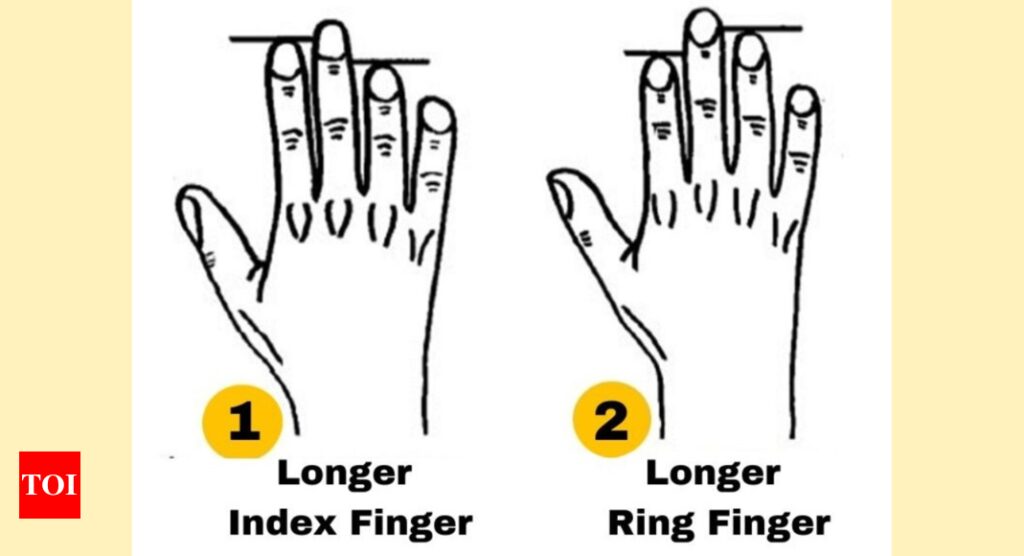Well, if you think you have eagle eyes then here’s a tricky riddle for you. According to The Mirror UK, only 15% of users were able to find all five horseshoes in the crowded stable scene below in under ten seconds; So set yourself a challenge and see if you can find them all in this puzzle. Brain puzzles are a great way to improve your memory and concentration skills while taking some time out of your busy schedule to get your brain working in different ways. Get your timer ready and see how much you can see. It sounds complicated but your brain can be your worst enemy for sorting, making you pay attention to the most superficial things in a picture rather than the answers, which is what makes them so. so tricky. Don’t worry if you can’t find them in time. So test your mind and your eyes – and the answers are below, but no cheating! Have you found them all yet? It’s also pretty easy if you can’t because I’ve prepared the clues for you. First, pay attention to the top right corner, where you will see two horseshoes overlapping each other. Then move your eyes towards the middle of the painting, to the water trough – another horseshoe can be seen attached to the box. And the last one is attached to the remaining water trough on the left side of the picture. Resolving optical illusions provides several cognitive benefits. First, it enhances visual perception and attention by training the brain to detect subtle differences in patterns, shapes, and colors. This helps improve focus and concentration. Optical illusions also promote problem-solving skills because they challenge the brain to think creatively and approach problems from different angles. Recent studies have shown that using optical illusions can significantly enhance cognitive skills. Researchers found that participants who frequently interacted with visual puzzles demonstrated improved spatial reasoning abilities compared to those who did not. This improvement is due to the brain’s increased ability to analyze and interpret complex visual information. Furthermore, the benefits go beyond simply solving the problem. The mental exercise provided by these illusions can help reduce stress levels, providing a joyful escape from daily pressures. Experts suggest that incorporating such activities into regular routines can promote greater cognitive flexibility, allowing individuals to adapt more easily to new situations and challenges. Incorporating optical illusions into educational settings is also gaining traction, as educators use them as tools to engage students in critical activities. thinking exercises. By challenging students to decode these visual tricks, teachers aim to build a more dynamic learning environment that encourages exploration and creativity. As the fascination with optical illusions continues to grow, it is clear that these seemingly simple images have the potential to open up deeper possibilities of perception, making them valuable assets in both life and development. Personal development and education. Regular exposure to optical illusions can also enhance pattern recognition, aiding decision making and analytical thinking, making it an enjoyable and beneficial activity for both children and adults. children and adults.
Resolving optical illusions provides several cognitive benefits. First, it enhances visual perception and attention by training the brain to detect subtle differences in patterns, shapes, and colors. This helps improve focus and concentration. Optical illusions also promote problem-solving skills because they challenge the brain to think creatively and approach problems from different angles. Recent studies have shown that using optical illusions can significantly enhance cognitive skills. Researchers found that participants who frequently interacted with visual puzzles demonstrated improved spatial reasoning abilities compared to those who did not. This improvement is due to the brain’s increased ability to analyze and interpret complex visual information. Furthermore, the benefits go beyond simply solving the problem. The mental exercise provided by these illusions can help reduce stress levels, providing a joyful escape from daily pressures. Experts suggest that incorporating such activities into regular routines can promote greater cognitive flexibility, allowing individuals to adapt more easily to new situations and challenges. Incorporating optical illusions into educational settings is also gaining traction, as educators use them as tools to engage students in critical activities. thinking exercises. By challenging students to decode these visual tricks, teachers aim to build a more dynamic learning environment that encourages exploration and creativity. As the fascination with optical illusions continues to grow, it is clear that these seemingly simple images have the potential to open up deeper possibilities of perception, making them valuable assets in both life and development. Personal development and education. Regular exposure to optical illusions can also enhance pattern recognition, aiding decision making and analytical thinking, making it an enjoyable and beneficial activity for both children and adults. children and adults.



